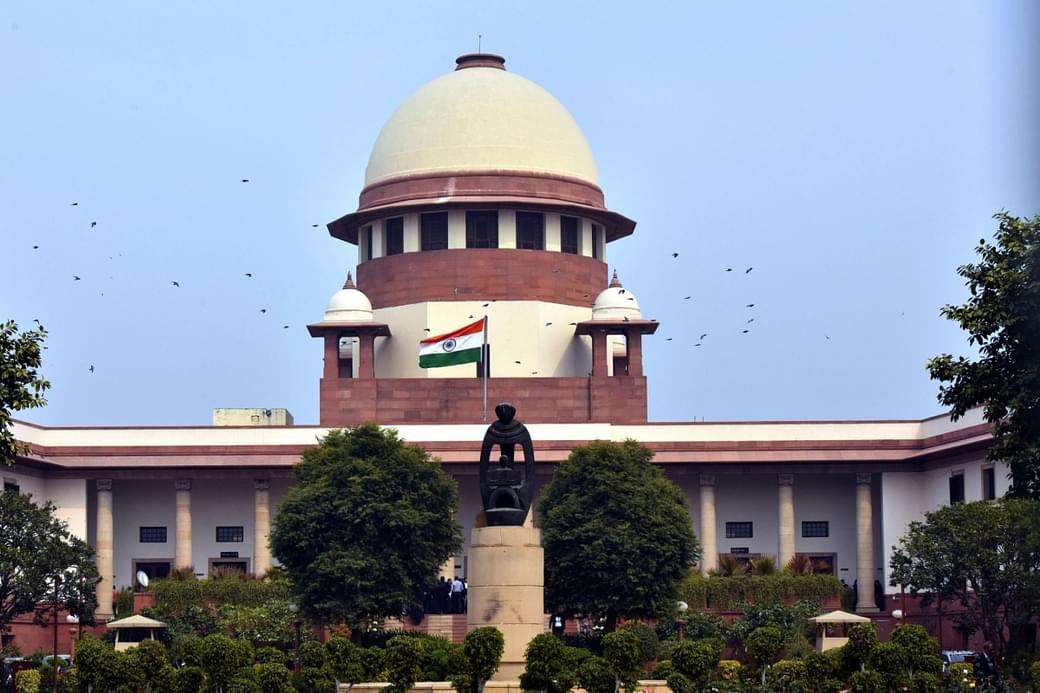On Monday, the Supreme Court rejected a petition asking for the Court’s involvement in declaring the subsidence in Joshimath a natural disaster. The bench, consisting of Chief Justice DY Chandrachud, Justice PS Narasimha, and Justice JB Pardiwala, allowed the petitioner to take the matter to the Uttarakhand High Court.
The Supreme Court rejected the plea seeking immediate assistance from the government for reparations and relief for the residents of Joshimath, Uttarakhand, who are living in fear due to a landslide and subsidence. The Court stated that the High Court could address the grievances, including rehabilitation of the affected people, and allowed the petitioner, Shankracharya Swami Avimukteshwaranand Saraswati, to take the matter to the High Court. The Court made this decision as a similar petition was pending before the Uttarakhand High Court. The plea also sought to halt the development of the Tapovan project and protect religious sites. The Court acknowledged that on January 12, 2023, a division bench of the High Court issued directions in a Public Interest Litigation that was filed following the glacial flooding of February 2021, which called for a halt to the construction of the Tapovan hydropower project until an early warning system was in place.
The plea filed by Swami Avimukteshwaranand Saraswati, a religious leader, sought for the current incidents of landslides, subsidence, land sinking, land bursts, and cracks in land and properties in Joshimath to be declared as a national disaster and for the National Disaster Management Authority to provide support to the affected residents. The petition also requested for immediate financial assistance and compensation to be given to those who have lost their homes and land due to the subsidence. It stated that the Union and State government’s intervention in the form of industrialization, urbanization, and destruction of natural resources were responsible for the environmental, ecological and geological disturbances in the area. The plea also called for the protection of spiritual and religious and cultural places of Hindus and Sikhs in Joshimath, and for the construction and building work of the Tapovan Vishnugad Hydro Electric Project tunnel to be halted until a high-level committee of geologists, hydrologists, and engineers had been established by the court.














